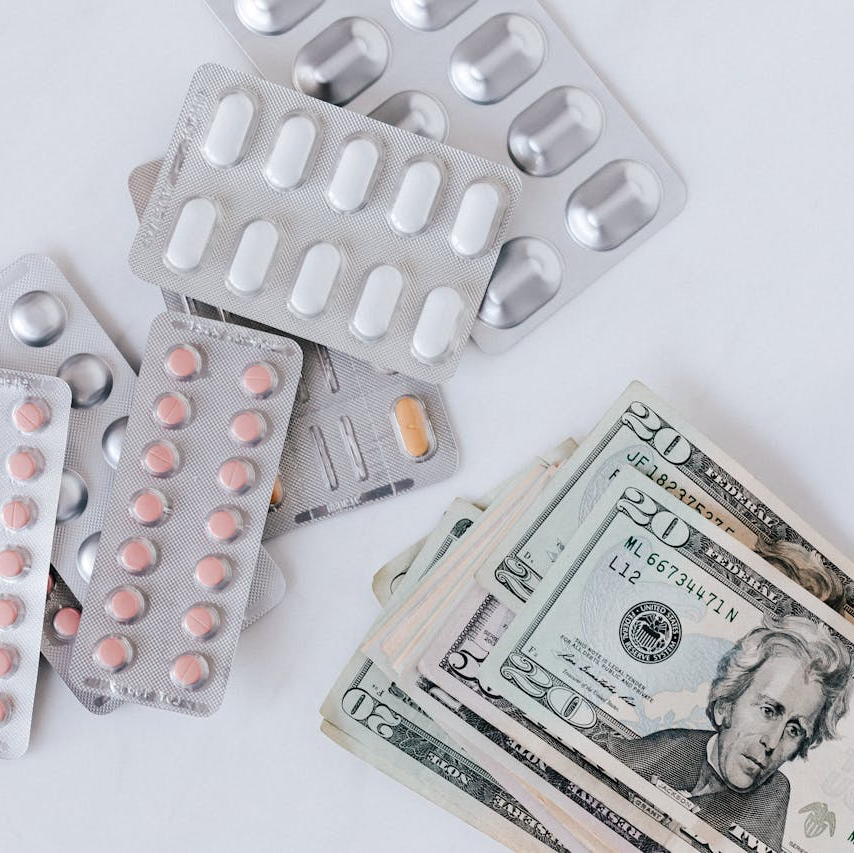Key Takeaways:
- Medicare is working to reduce the financial burden of prescription drugs for low-income seniors, ensuring broader access to essential medications.
- Recent initiatives are focusing on lowering out-of-pocket expenses and offering targeted assistance programs to support vulnerable groups.
How Medicare Is Making Prescription Drugs More Affordable for Low-Income Seniors
In 2024, Medicare continues its efforts to address the rising cost of prescription drugs, particularly for low-income seniors. This vulnerable group often struggles with the affordability of necessary medications, making it a priority for Medicare to offer financial relief. Through various legislative measures and programs, Medicare aims to ensure that older adults receive the medications they need without facing financial hardship. In this article, we will explore the ways in which Medicare is working to make prescription drugs more affordable and how these changes impact low-income seniors.
Addressing Prescription Drug Costs for Seniors: A Growing Concern
The rising cost of prescription drugs has been a significant issue for seniors over the years. For those on fixed incomes, such as Social Security, managing out-of-pocket costs for essential medications can be overwhelming. Many low-income seniors are forced to make difficult choices, including whether to pay for food, utilities, or medications. The cost of prescriptions can be particularly burdensome for those managing chronic conditions like diabetes, hypertension, or heart disease, which often require ongoing medication.
Medicare has recognized this issue and implemented various strategies to make medications more affordable for this population. These efforts include expanding assistance programs, capping out-of-pocket expenses, and negotiating better drug prices.
Medicare Part D: Lowering Drug Prices Through Legislation
One of the most significant changes that have helped low-income seniors is the evolving structure of Medicare Part D, which provides prescription drug coverage. Medicare Part D, introduced in 2006, has undergone numerous reforms aimed at lowering costs. Recent changes, influenced by legislative measures like the Inflation Reduction Act, have made it possible for Medicare to negotiate prices for certain high-cost drugs directly with pharmaceutical companies. This negotiation power, which takes effect gradually, aims to lower the prices of some of the most expensive medications on the market.
Additionally, Medicare has introduced annual caps on out-of-pocket expenses, which ensures that seniors do not have to spend beyond a specific amount for their medications. In 2024, these efforts continue to expand, focusing on lowering the maximum out-of-pocket expenses for beneficiaries, providing more financial protection for low-income seniors.
Extra Help Program: Targeting the Most Vulnerable
One of the most impactful programs that Medicare offers to low-income seniors is the Extra Help program, also known as the Low-Income Subsidy (LIS). This program is specifically designed to help those with limited income and resources afford their prescription medications. Extra Help reduces or eliminates premiums and copayments associated with Medicare Part D.
Eligibility for Extra Help is based on income and asset levels, and qualifying beneficiaries can save thousands of dollars each year on prescription drugs. The program ensures that seniors with the greatest need can access medications without worrying about high costs. In 2024, Medicare has made efforts to streamline the application process for this program, making it easier for eligible seniors to enroll and start receiving benefits.
Prescription Drug Price Transparency: A Step Toward Greater Affordability
Transparency in drug pricing is another important aspect of Medicare’s strategy to make prescription drugs more affordable. By requiring drug manufacturers to disclose and justify price increases for medications covered under Medicare, the program aims to hold companies accountable for rising costs. This transparency not only helps in controlling drug prices but also enables Medicare to identify which medications should be prioritized for price negotiation.
The transparency initiative also empowers seniors by providing them with better information about the costs of their medications. With more accessible pricing information, seniors can compare costs and make informed decisions about their prescription drug options.
Expanding Access to Generic Medications
Another way Medicare is reducing prescription drug costs for low-income seniors is by promoting the use of generic medications. Generic drugs are often significantly less expensive than their brand-name counterparts while offering the same therapeutic benefits. Medicare encourages the use of generics through formularies that list preferred drugs and provide lower copayments for these options.
By expanding access to generic medications, Medicare ensures that seniors can access affordable options without compromising on the quality of their care. In 2024, the emphasis on generics continues to grow as more seniors are educated about the benefits of choosing these cost-effective alternatives.
What Is Being Done About the Medicare Coverage Gap?
The Medicare coverage gap, commonly known as the “donut hole,” has historically been a significant financial burden for seniors. This gap occurs when a senior’s total prescription drug costs reach a certain limit, causing them to pay a larger share of their medication costs until catastrophic coverage kicks in.
In recent years, Medicare has taken steps to close the coverage gap, which has resulted in substantial savings for many seniors. As of 2020, the donut hole has been effectively closed, meaning seniors pay only 25% of the cost of their medications once they reach the coverage limit. This is particularly beneficial for low-income seniors, as it reduces the financial strain they face during the gap period.
In 2024, efforts to further protect seniors from high drug costs continue, with additional measures aimed at capping out-of-pocket expenses and increasing the availability of financial assistance programs.
What Can Seniors Do to Take Advantage of Medicare’s Prescription Drug Savings?
Understanding the various programs and initiatives Medicare offers can be challenging, especially for seniors who may not be familiar with the intricacies of health insurance. However, there are several steps low-income seniors can take to ensure they benefit from Medicare’s efforts to make prescription drugs more affordable.
-
Apply for Extra Help: Low-income seniors who meet eligibility requirements should apply for the Extra Help program. This can be done through the Social Security Administration or by contacting a local Medicare office for assistance.
-
Review Medicare Part D Plans Annually: While specific plans and providers are not endorsed, it is essential for seniors to review their Medicare Part D plans each year to ensure they are getting the best coverage for their prescription needs. Changes in formularies and costs can impact out-of-pocket expenses, so reviewing options during the open enrollment period is crucial.
-
Ask About Generics: Seniors should speak with their healthcare providers about switching to generic medications when possible. Many brand-name drugs have affordable generic alternatives that are equally effective.
-
Utilize Preventive Services: Medicare also covers certain preventive services that can help seniors avoid high prescription costs in the future. By managing health conditions early and taking advantage of preventive care, seniors can reduce the need for costly medications down the line.
The Role of Licensed Insurance Agents
Licensed insurance agents can also play a critical role in helping low-income seniors navigate their Medicare options. These professionals are knowledgeable about the different programs and resources available and can provide guidance on how to maximize benefits. While it is important to consult official resources like CMS.gov, speaking with an agent can provide personalized advice based on an individual’s specific circumstances.
Licensed agents can help seniors explore all their options under Medicare, ensuring they take full advantage of savings opportunities like the Extra Help program or assistance with navigating Medicare Part D.
Improving Access to Affordable Medication in 2024
The efforts to make prescription drugs more affordable for low-income seniors continue to evolve, with Medicare at the forefront of these changes. By expanding programs like Extra Help, promoting transparency in drug pricing, and encouraging the use of generics, Medicare is making significant strides in reducing the financial burden on older adults. As we move further into 2024, these initiatives are expected to grow, ensuring that even more seniors can access the medications they need at prices they can afford.
For low-income seniors, understanding and utilizing these resources is key to maintaining health and well-being without facing overwhelming costs. As Medicare continues to implement new strategies, seniors can look forward to more affordable access to essential prescription medications.
A Future Focused on Affordability and Access
Medicare’s efforts to reduce prescription drug costs have already made a noticeable impact on low-income seniors. With the ongoing reforms and focus on affordability, seniors can expect continued support in accessing the medications they need without excessive financial strain. The future looks promising as Medicare continues to refine and improve its strategies for ensuring all seniors, particularly those with limited income, can lead healthier, more comfortable lives.









